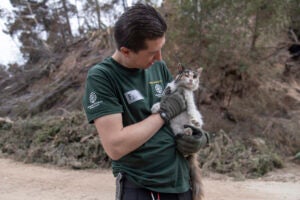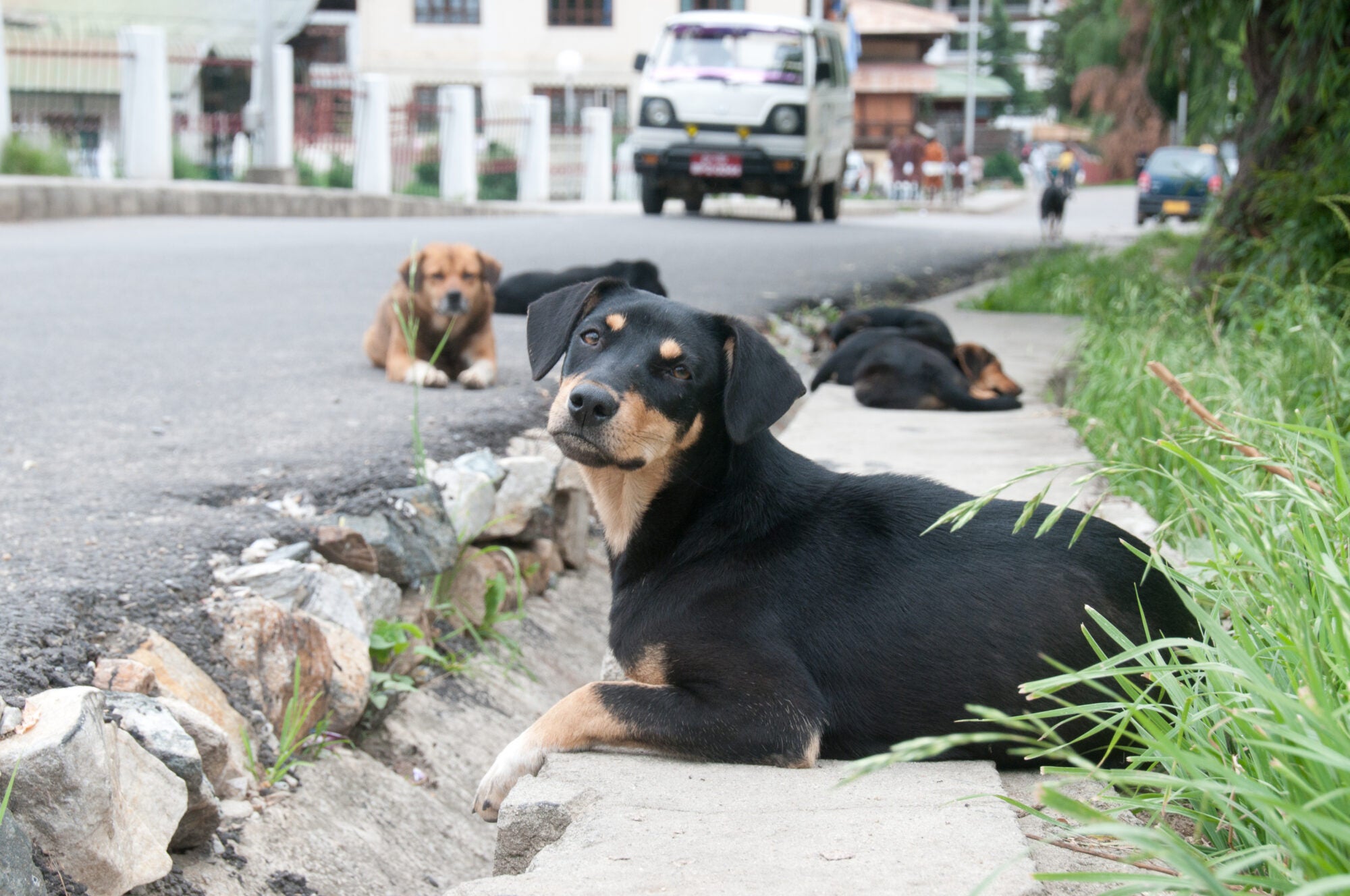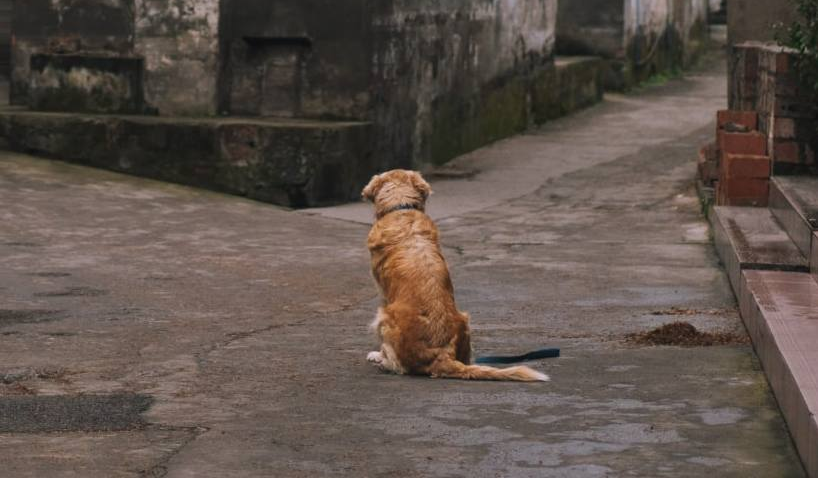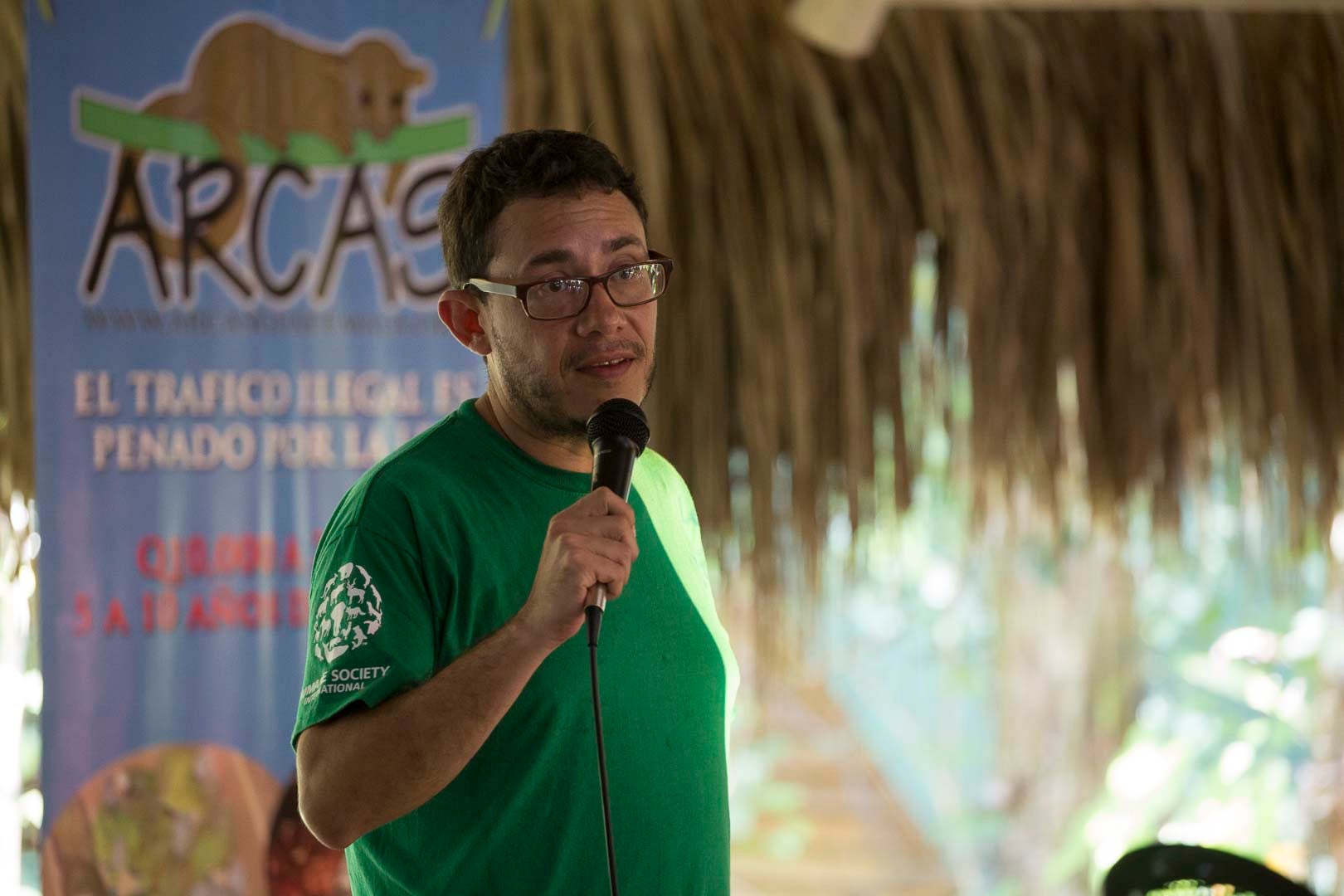
VIÑA DEL MAR, Chile—From a makeshift veterinary hospital set up in a local school in the wildfire-impacted city of Viña del Mar in Chile, the disaster relief team from animal charity Humane Society International is helping to treat dogs and cats with distressing injuries.
Animals are brought in with painful burns to their paws and bodies, breathing difficulties from smoke inhalation and infected eyes from falling ash and debris. Animals are also experiencing dehydration and malnutrition from spending days fending for themselves after becoming separated from their families during the fire. Since the hospital was first established after the fire, around 150 animals have received treatment at the hospital, where HSI’s disaster relief team has deployed at the request of the Viña authorities. HSI will also begin search and rescue in more remote areas where they expect to find more animal casualties in need of treatment.
Daniela Sanchez, HSI’s Chile country director, who lives in the local area, said: “The majority of dog and cat casualties are coming into the field hospital with painful skin burns, breathing problems and other issues caused by direct contact with the fires or burning materials. These animals have been through a very frightening ordeal compounded by being separated from the comfort of their families, so we are also treating many of them for shock as well as dehydration and malnutrition. Every day we are seeing desperate locals coming to the hospital searching for their beloved animal companions in the hope of being reunited. We are working hard to make those happy reunions possible so that despite the devastation this fire has caused, at least people and their pets can be together again to help each other get through the trauma.”
Felipe Marquez, HSI Latin America’s disaster response program manager from Mexico, has responded to many disasters and believes that for the sake of both people and animals, there is an increasing need for climate change-related disaster preparedness as such events become more frequent and intense. According to the United Nations Environment Program, wildfires are likely to increase by up to 14% by 2030 and 50% by 2100 due to climate change and land use change which are leading to “hotter, drier and longer fire seasons.”
HSI’s Marquez says: “Millions of people and animals across the planet, including here in Viña del Mar, are victims of climate change-exacerbated disaster events. This is becoming a more frequent reality for animal rescue teams such as HSI’s which is why we focus a lot on helping communities and local authorities better prepare for the inevitable. For now though, our immediate priority here in Chile is to attend animal casualties, distribute food, water and veterinary supplies, as well as head out on search and rescue to find animals for whom help has not yet come. We know from our field experience responding to earthquakes, wildfires and floods around the world that injured or sick animals can survive for some time by scavenging a little food and water, but without treatment they can succumb to injuries and infections. So, we’re hoping to reach as many as possible and bring them back to the hospital for proper care.”
HSI’s disaster relief team comprise members from Chile, Colombia, Costa Rica, Mexico and the United States. Between them they have years of experience in animal search and rescue, including during Australia’s wildfires in 2020 and the earthquakes in Türkiye last year.
ENDS
Media contact: Wendy Higgins, director of international media: whiggins@hsi.org



